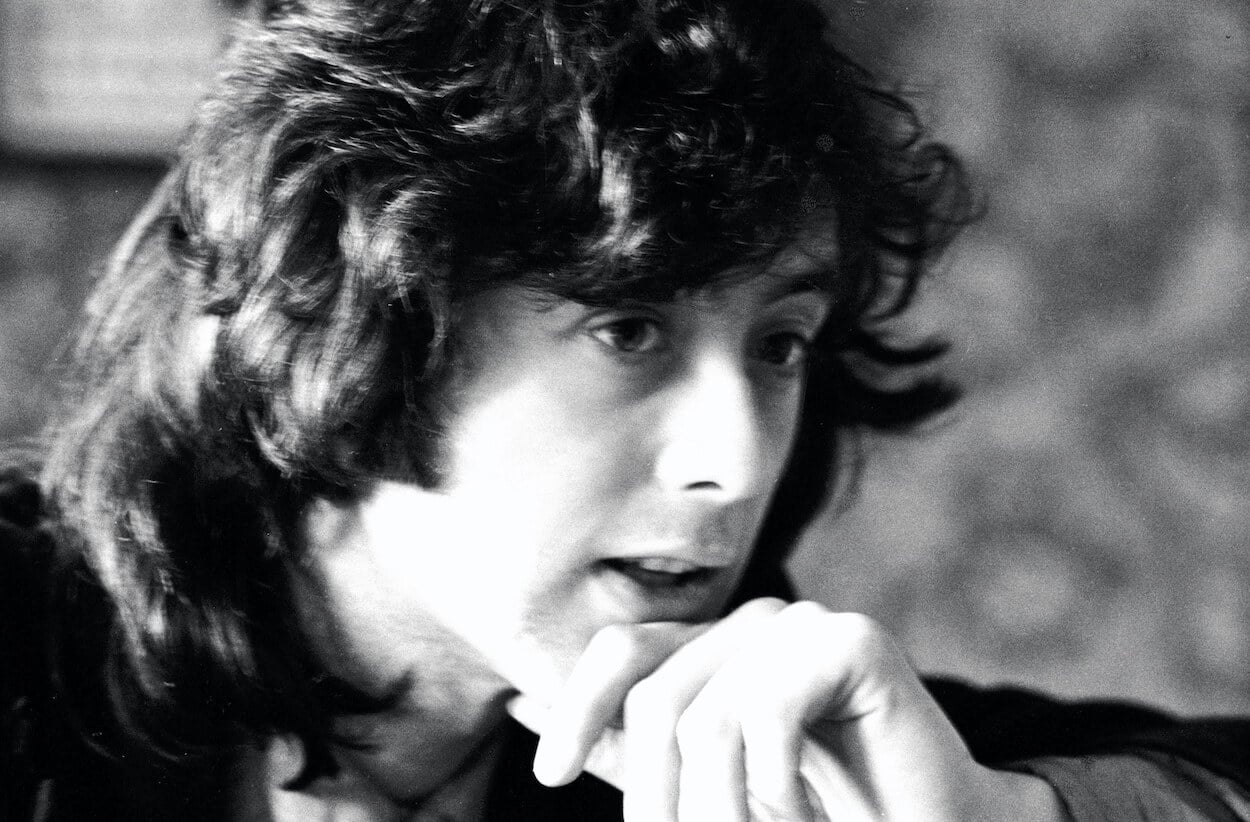
Jimmy Page Told Off Would-Be Led Zeppelin Producer Glyn Johns: ‘You Haven’t Got a Hope in Hell’
Led Zeppelin was Jimmy Page’s baby. The guitarist assembled the band. He dictated the creative vision. He had a hand in writing nearly all of Zeppelin’s songs. Page played guitar and other instruments. Just as crucially, he produced all the band’s albums. It was a lot of extra work, but Page never considered giving up the role as Led Zeppelin’s producer, and when an outsider tried to muscle his way into the title, the guitarist told him off with a very frank response.
Jimmy Page told Glyn Johns he ‘didn’t have a hope in hell’ of producing Led Zeppelin
Led Zeppelin was nearly a self-contained entity. Aside from tabla player Viram Jasani contributing to “Black Mountain Side” on the debut and Robert Plant sharing vocals with Sandy Denny on “The Battle of Evermore,” they never used outside performers. Sound engineers were the only outsiders to crack the inner circle.
Page tapped Glyn Johns to engineer the first record. Naturally, the guitarist produced and paid to make the first album.
The Rollings Stones, Small Faces, Steve Miller Band, and Traffic had already employed Johns as an engineer before he worked on Led Zeppelin I. When Johns tried to crib a producer credit for Zep’s debut, Page told him off with a stern and clear message (via Light & Shade: Conversations With Jimmy Page):
“Glyn Johns was the engineer on the first album, and he tried to hustle in on a producer’s credit. I said, ‘No way. I put this band together, I brought them in and directed the whole recording process, I got my own guitar sound — I’ll tell you, you haven’t got a hope in hell.’”
Jimmy Page
It’s not hard to understand Page telling off Johns when he tried to gain a producer credit on the first Led Zeppelin album.
The guitarist never had a say in recording techniques as a session musician or as a latecomer to the Yardbirds. It was the producers who ran the show and got the last word. Page started Led Zeppelin with a plan, and their debut album was his chance to put his recording plan into action. The result was an album stacked with some of Zep’s finest songs, including “Good Times Bad Times,” “You Shook Me,” “Dazed and Confused,” and “Communication Breakdown.”
Page rotated among several engineers on later Led Zeppelin albums but never gave up his producer role
Johns’ pushy approach must have burrowed into Page’s memory. The guitarist never invited the engineer to work on another Led Zeppelin album.
Gene Chkiantz and Andy Johns (Glyn’s younger brother) engineered and/or mixed several Zep records. Chkiantz engineered Led Zeppelin II and Physical Graffiti and served as mixer and engineer on Houses of the Holy. Andy Johns engineered LZ II and Physical Graffiti and was the sound and mixing engineer on Led Zeppelin III, Led Zeppelin IV, and Houses of the Holy (per AllMusic).
Page fiercely protected his methods in the studio. He didn’t want sound engineers to replicate his techniques for other bands, so he rotated several people in and out of that role. The list included Glyn Johns, Andy Johns, Chkiantz, Eddie Kramer (The Song Remains the Same soundtrack engineer who worked on several Zep albums), and Leif Mases (In Through the Out Door).
“I consciously kept changing engineers because I didn’t want people to think that they were responsible for our sound,” Page said in Light & Shade. “I wanted people to know it was me.”
As for anyone edging in on Page’s role as Led Zeppelin’s producer? As Glyn Johns discovered, no one had a hope in hell of that happening. Page’s skill as a producer was evident on his band’s debut album. He never needed or wanted anyone’s assistance in that area.
For more on the entertainment world and exclusive interviews, subscribe to Showbiz Cheat Sheet’s YouTube channel.


